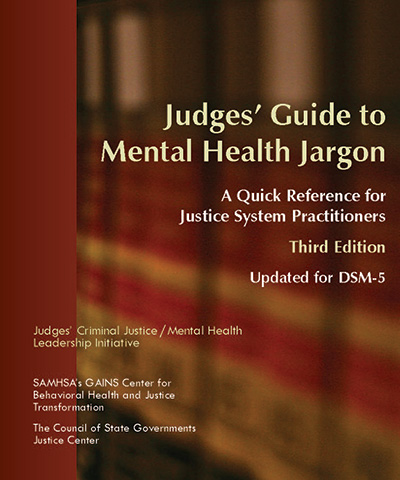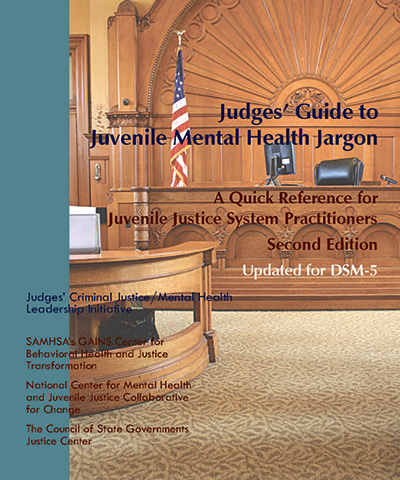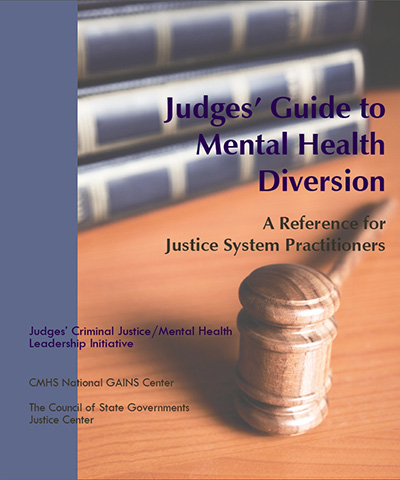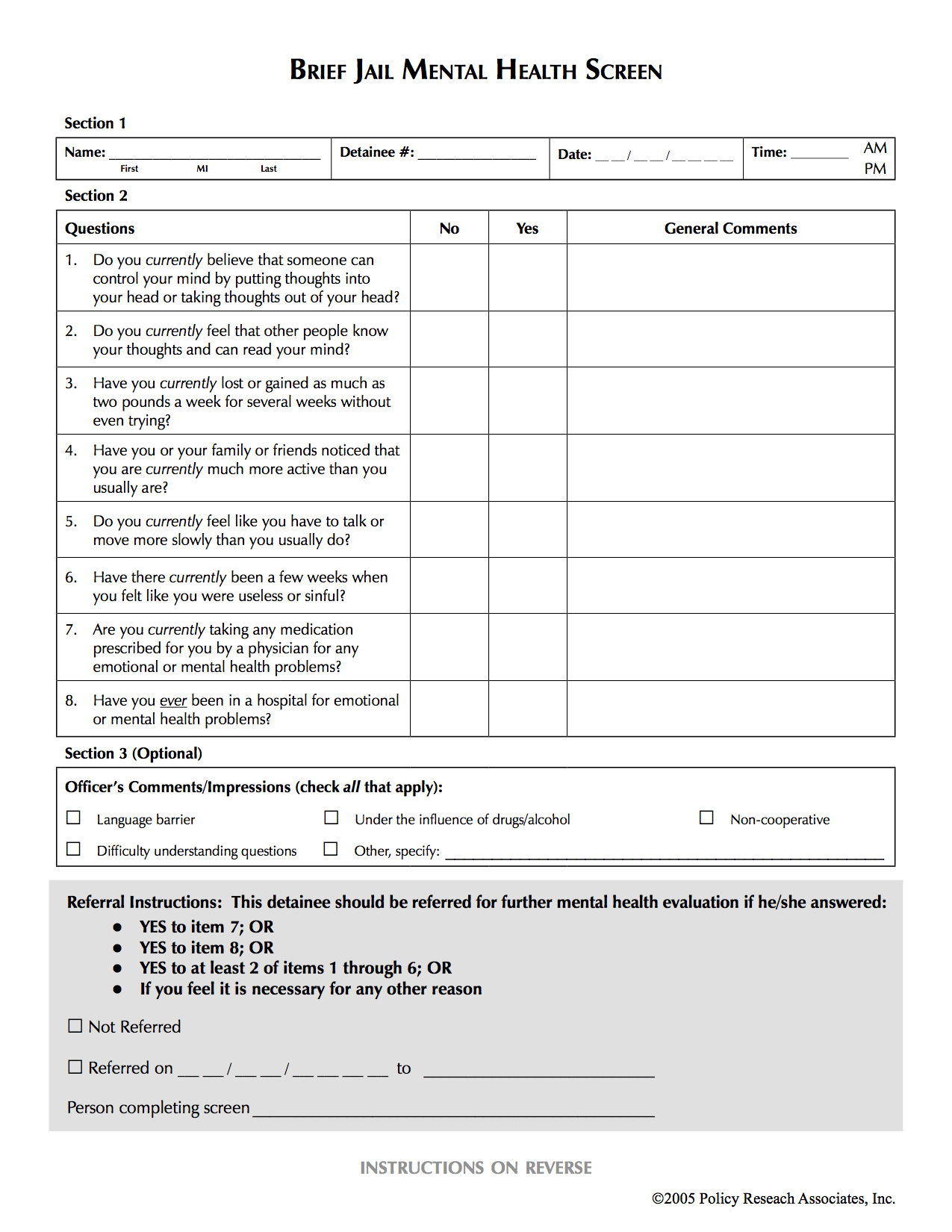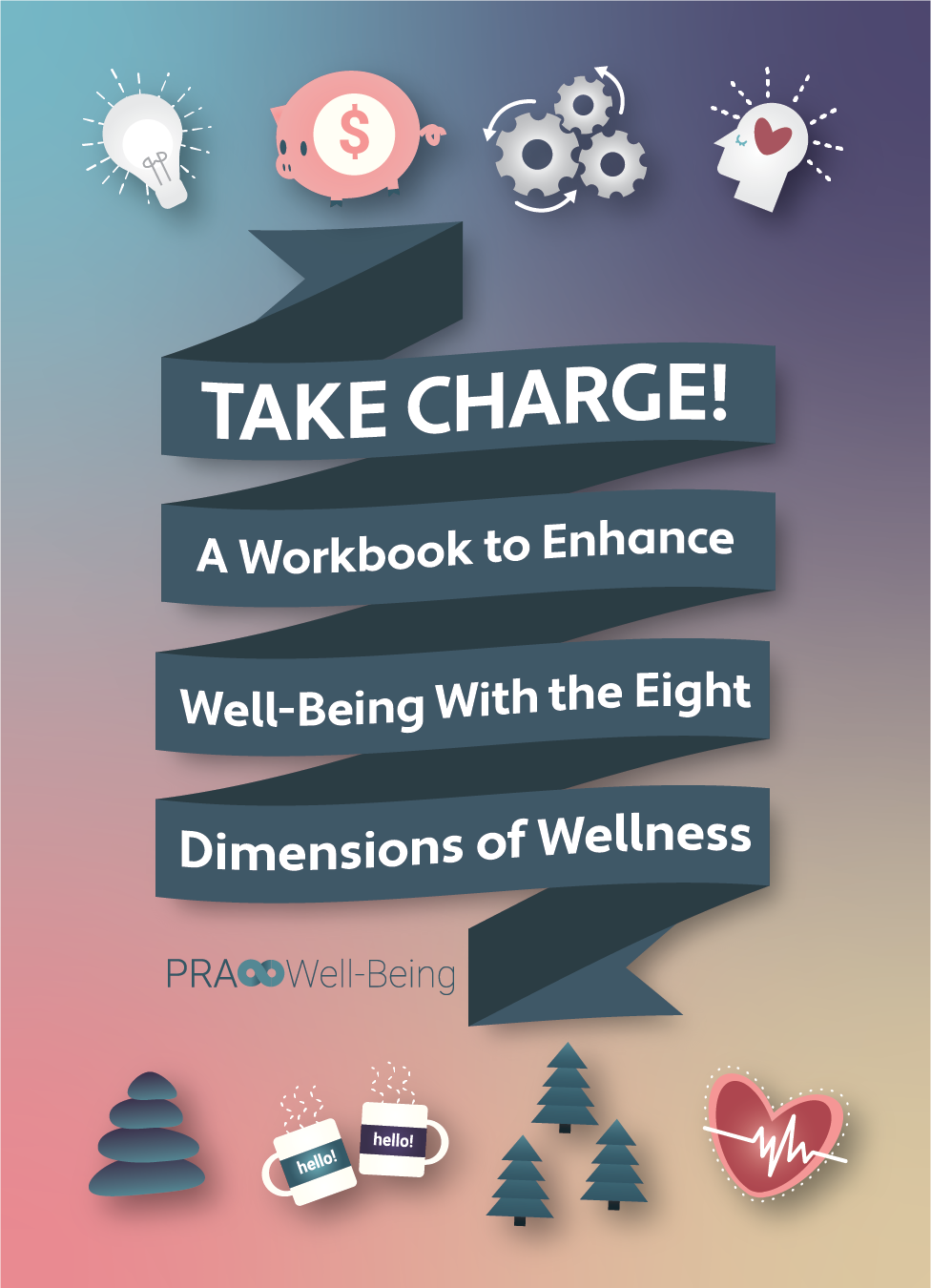Products
PRA has developed numerous products to provide behavioral health professionals in a range of fields with resources and guides in our core content areas. Below is a sampling of our available products:
Judges’ Guides
The Judges’ Guides are products of the Judges’ Criminal Justice/Mental Health Leadership Initiative, coordinated by SAMHSA’s GAINS Center and the Council of State Governments Justice Center. Physical copies of these Guides were previously available for sale. They are now being made available for free as downloadable PDFs.
Contact us with any questions regarding the Judges’ Guides at pra@prainc.com.
Judges’ Guide to Mental Health Jargon, Third Edition
The Judges’ Guide to Mental Health Jargon is a resource for judges involved with criminal justice/mental health initiatives in their communities. It is a tabbed, quick reference guide to the mental health terms most often encountered in criminal justice settings. The greatest changes from the second edition are to the Treatment and Supports, Diagnoses, and Medications sections.
Judges’ Guide to Juvenile Mental Health Jargon
The Judges’ Guide to Mental Health Jargon is intended to serve as a resource for judges who hear juvenile cases and who are involved in juvenile justice/mental health initiatives in their communities. Developed by Thomas Grisso, Ph.D., and Kamlyn Haynes, M.D., of the University of Massachusetts Medical School. Originally printed in 2007, this guide now incorporates changes prompted by the release of the Diagnostic and Statistical Manual of Mental Disorders, Fifth Edition (DSM-5).
Judges’ Guide to Mental Health Diversion
The Judges’ Guide to Mental Health Diversion is a tabbed, reference guide for judges interested in developing, implementing, or expanding jail diversion programs for people with mental illness.
Brief Jail Mental Health Screen
The effective quick, simple, and free Brief Jail Mental Health Screen (BJMHS) is a powerful booking tool to screen incoming detainees in jails and detention centers for the need for further mental health assessment.
Developed by Policy Research Associates, with funding from the National Institute of Justice, the BJMHS was validated in a study that included 10,330 detainees from four jails, two in New York and two in Maryland. The results indicated that the BJMHS would refer about 11 percent of incoming detainees for further mental health assessment. The BJMHS was administered to all participants during the booking process. The BJMHS results were validated by the SCID, a standardized clinical evaluation tool, which was administered to 357 detainees. The SCID evaluation measured whether the BJMHS had correctly identified the detainees who should be referred for further mental health assessment. Seventy-three percent of males and 62 percent of females were correctly identified, making the BJMHS the best available solution to determine further need for mental health evaluation for incoming detainees. To read further about the study, please read the full article entitled, “Validating the Brief Jail Mental Health Screen,” (PDF 204kb) in the July issue of Psychiatric Services.
The BJMHS assesses incoming detainees for the possibility of having a serious mental illness such as schizophrenia, bipolar disorder, or major depression. The process takes less than 3 minutes and is easily incorporated by corrections officers into the booking process. The entire screen consists of only eight yes/no questions.
Officers who administered it in the validation research felt that the form helped to remind them to look for “flags” in incoming detainees.
The screen is simple to administer by corrections officers during the booking process. The BJMHS requires little formal training, but included with the screen is a page of instructions and suggestions. The instructions include specific administration instructions, as well as scoring instructions. Please read these instructions before administering, because they will aid in the administration of the screen.
Important Reminders
This screen will only identify the need in incoming detainees for further mental health assessment. This screen will not:
- Guarantee that the detainee has a mental illness
- Identify everyone with a need for mental health services
- Identify the specific mental illness a detainee may have
Because the screen does not guarantee the identification of everyone with a need, the form allows for discretion when making referrals. A detainee may pass the screen, but their behavior may indicate they need further evaluation and therefore, should be referred.
Because the screen is not as accurate in identifying women as it is in identifying men, special attention should be paid to women who exhibit or report behavior that may indicate the need for further mental health referral, regardless of their BJMHS score.
Spanish-Language Brief Jail Mental Health Screen
The Brief Jail Mental Health Screen is available for free, public download in Spanish. Please note that the Spanish version of the BJMHS has not been validated with a Spanish-speaking population. The BJMHS was translated into Latin American Spanish based on a site-specific request in 2018. Users of this version of the BJMHS do so at their own discretion.
Questions
If you have any questions concerning the screen, please contact pra@prainc.com.
Take Charge! A Workbook to Enhance Well-Being With the Eight Dimensions of Wellness
Take Charge! A Workbook to Enhance Well-Being With the Eight Dimensions of Wellness is designed to offer readers a self-paced, guided exploration of each of the Eight Dimensions of Wellness. With space for responding to written prompts and even coloring, this workbook creates an opportunity for users to get curious about their own wellness strengths and barriers and create action plans for improving personal well-being.
Take Charge! is composed of eight chapters—one for each of the Eight Dimensions of Wellness (emotional, environmental, financial, intellectual, occupational, physical, social, and spiritual). This workbook contains information, ideas, and strategies for helping promote both prevention and recovery.
Readers can use this workbook as part of a personal recovery and wellness journey. Behavioral health organizations will find it valuable to distribute to people who receive services and even to staff, who can better serve others with greater attunement to their own wellness.
Questions? Contact us at wellbeing@prainc.com.


